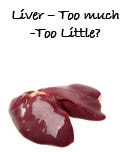Natural Wonders Of Krill For Pets
https://allnaturalpetcare.com
(Really nice website with Pet Care, Nutrition, Blog, Product Reviews and so much more)
https://allnaturalpetcare.com
(Really nice website with Pet Care, Nutrition, Blog, Product Reviews and so much more)

The exceptional holistic benefits of Krill and Krill oil have been proven time and time again for many species, including humans. It has far surpassed even fish oil for similar functions and offers many other natural benefits.The blanket term ‘Krill’ refers to all 85 deep water marine planktonic crustacean species, which combined make up the world’s most abundant biomass. Krill has been informally harvested since the early 1800’s and they are one of the most efficiently renewable food resources.
Krill is available in several forms for our pets, including frozen, various grades of ‘meal’, whole freeze-dried, flaked/ground freeze-dried and oil. These can be used as ingredients in homemade pet food recipes or mixed with commercial food as a natural supplement. Cats will often eat pieces of freeze-dried Krill as a nutritious treat.
Krill is rich in DHA, Phospholipids (stimulates the building of cell membranes) and Essential Fatty Acids, including Omega 3, 6 and 9. Both DHA and EPA are crucial to fighting and preventing disease and overall health.
Astaxanthin, a carotenoide, is abundant in Krill. In fact, over 95% of the pigments present in krill are in the form of astaxanthin, measuring a whopping 100 to 300 parts per million (ppm=mg/1). It is a more powerful antioxidant than Lutein, Alpha-tocopherol, Lycopene and Beta-carotene.
As a supplement, Krill Oil is naturally more stable and bio-available than fish oil and it contains no heavy metals. Krill far outperforms fish oil for heart and liver fat reduction. It is also higher than fish (and vitamins A & E) in antioxidants.
The natural immunity enhancement provided by Krill through its amazing nutrient profile is combined with unique contributions such as Chitin, which is 2.4 – 2.7% of their dry weight. It also promotes early development of the immune system, resulting in increased survival rates of newborns.
Since scientific research on the effects of any item can be lacking for specific species, we suggest you research the known benefits of each holistic component to determine what krill offers to your pet. Following is some basic information to get you started:
Krill is available in several forms for our pets, including frozen, various grades of ‘meal’, whole freeze-dried, flaked/ground freeze-dried and oil. These can be used as ingredients in homemade pet food recipes or mixed with commercial food as a natural supplement. Cats will often eat pieces of freeze-dried Krill as a nutritious treat.
Krill is rich in DHA, Phospholipids (stimulates the building of cell membranes) and Essential Fatty Acids, including Omega 3, 6 and 9. Both DHA and EPA are crucial to fighting and preventing disease and overall health.
Astaxanthin, a carotenoide, is abundant in Krill. In fact, over 95% of the pigments present in krill are in the form of astaxanthin, measuring a whopping 100 to 300 parts per million (ppm=mg/1). It is a more powerful antioxidant than Lutein, Alpha-tocopherol, Lycopene and Beta-carotene.
As a supplement, Krill Oil is naturally more stable and bio-available than fish oil and it contains no heavy metals. Krill far outperforms fish oil for heart and liver fat reduction. It is also higher than fish (and vitamins A & E) in antioxidants.
The natural immunity enhancement provided by Krill through its amazing nutrient profile is combined with unique contributions such as Chitin, which is 2.4 – 2.7% of their dry weight. It also promotes early development of the immune system, resulting in increased survival rates of newborns.
Since scientific research on the effects of any item can be lacking for specific species, we suggest you research the known benefits of each holistic component to determine what krill offers to your pet. Following is some basic information to get you started:
- Krill contains unsurpassed levels of bio-available Highly Unsaturated Fatty Acids (HUFA) and Essential Fatty Acids (EFA)
- Exceptionally high Omega 3 Fatty Acids
- Contains Phospholipids
- High in Antioxidants
- Excellent source of Carotenoide astaxanthin
- Rich in bio-available minerals
- Krill is a rare source of cohabitating Hydrolytic enzymes (Phospholipases, Proteases, Nucleases & Carbohydrases)
- Natural source of Choline.
- Natural immunity enhancing properties
- Natural Source of Chitosan (derivative of Krill Chitin)
- Anti-inflammatory properties
- Anti-fungal properties
- Krill contains a wide range of biochemicals
- Offers Photoprotectors
- Reduces fat in your pet’s heart & liver
- Krill is lower in Ash and Phosphorus by comparison to fish or shrimp meal
- Moderate caloric content
- Krill is easily digested
The use of Krill for holistic pet care has yielded positive results in regards to the following:
- Stimulates the immunological system in pets
- Provides exceptional cardiovascular support
- Beneficial dietary supplement during pet pregnancy & lactating
- Increase in newborn pet survival and healthy growth rates
- Natural treatment of arthritis / joint conditions in pets
- Improved skin and coat condition (through improved collagen production)
- Improved appetite/intake/palatability (masks the taste of medication)
- Maintains healthy blood lipid levels
- Krill naturally improves chemioperception in pets
- Decreased recovery time in pets when fed Krill pre & post-operative
- May naturally decrease hyperactivity, anxiety and minor aggression in pets
- Overall revitalization & improved alertness
- Krill naturally protects pets from UV rays
- Natural treatment of pet nutritional disorders
- Increased egg production in aquarium fish, shrimp and snails fed Krill
- Naturally conditions captive fish, shrimp & snails for breeding.
- Improved egg and offspring health from a diet supplemented with Krill
- Better finnage growth and fin quality in show fish
- Naturally enhanced coloration/pigment in aquarium fish and shrimp
- Calms ‘nervous’ species of aquarium fish
- Krill is rich in trimethylamine oxide, which improves osmoreguation in fish
|
Some tips on how to defrost your raw dog food correctly.
|
The genomic signature of dog domestication reveals adaptation to a starch-rich diet – does this mean dogs are supposed to eat kibble food?
|
How much liver is enough, and is it possible to overdo it? Are all kinds – beef, lamb, chicken, pork – created equal? A must read for all those that give liver, in the different forms to their dogs.
|




